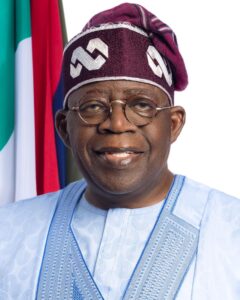President Bola Ahmed Tinubu’s first year in office. Inheriting numerous challenges from his predecessor, President Muhammadu Buhari, Tinubu’s term has been marked by economic struggles, security concerns, an overextended public service, and the effects of global crises like the Covid-19 pandemic and Ukraine war.
The Nigerian economy was in a precarious state when Tinubu took office. High inflation, rampant unemployment, and a ballooning national debt, coupled with a population growing at a faster rate than the GDP, constituted a “perfect storm” of economic woes. Furthermore, Tinubu’s government is still grappling with the consequences of a controversial 2023 election.

Despite these challenges, Tinubu’s administration has made some significant policy decisions. A notable example was the removal of fuel subsidies and the merging of exchange rates. While these were much-needed changes, the ensuing fallout suggests that the government may not have adequately prepared for the consequences of these decisions.
The transition from the Buhari administration was not smooth, as evidenced by the delay in cabinet formation and the controversies surrounding the appointments made. Tinubu’s radical approach to governance has drawn criticism, with some arguing that it has led to widespread suffering among Nigerians.
Some of these problems are inevitable and that vested interests, such as currency manipulators and corrupt officials in ministries, departments, and agencies (MDAs), have presented barriers to reform.
Despite these hurdles, Tinubu’s government has managed to make headway in structural reforms and oil production. If this progress continues and the government successfully navigates the impact of tighter monetary controls, the situation may improve.
Critics, including potential contenders for the 2027 elections, may be exaggerating the government’s failures. It acknowledges Tinubu’s courage, foresight, and resilience but stresses the need for him to deliver tangible results to the Nigerian people.
while Tinubu’s first year in office has been marked by bold decisions and numerous challenges, his efforts to address long-standing issues and reform the economy are commendable. Tinubu’s administration can still achieve its objectives and improve the lives of Nigerians, with careful planning and discipline.




